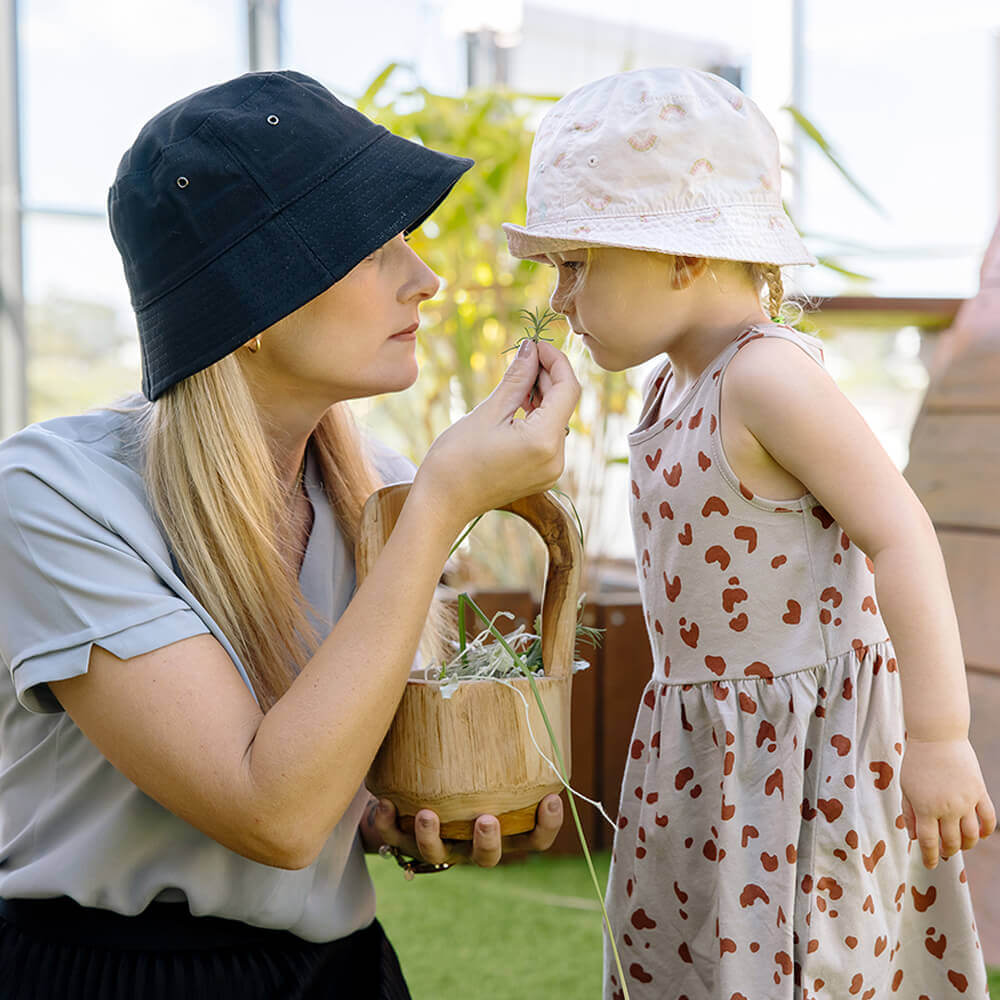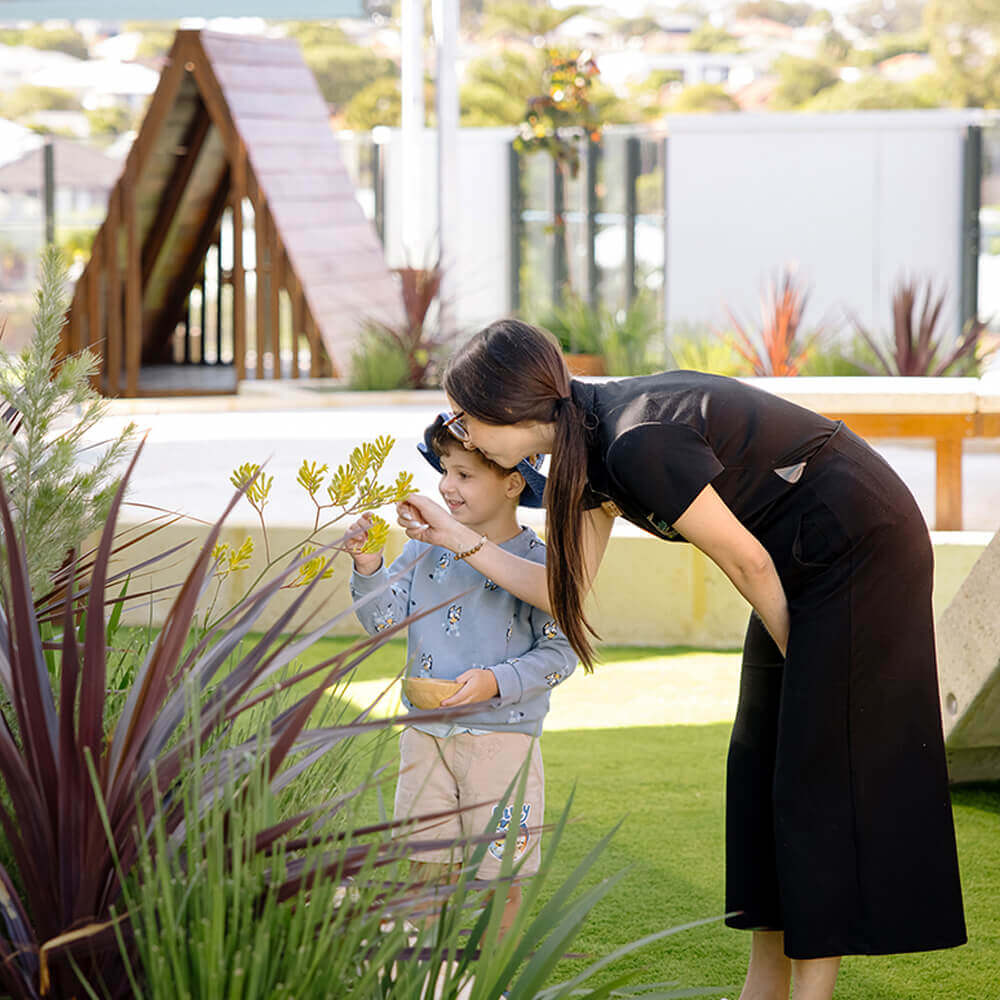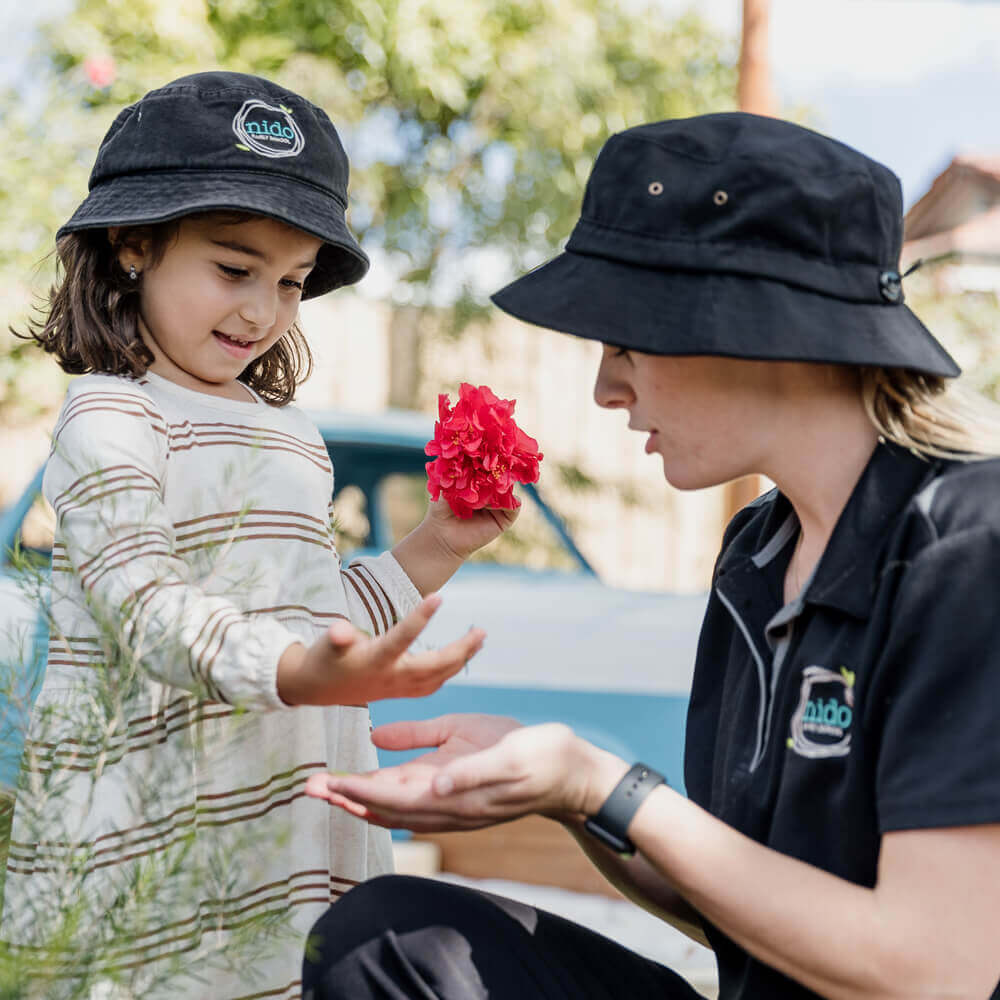What is the Reggio Emilia Philosophy?
Named after its birthplace in Italy, this approach began as a vision by a local teacher to rebuild the community after the devastating effects of World War II. The approach focuses on the importance of cultivating young minds and has gained worldwide recognition as best practice for its unique vision of early childhood education.
Inspired by this philosophy, Nido follows the belief that the child, parent, community and environment are all essential to the early years learning process.
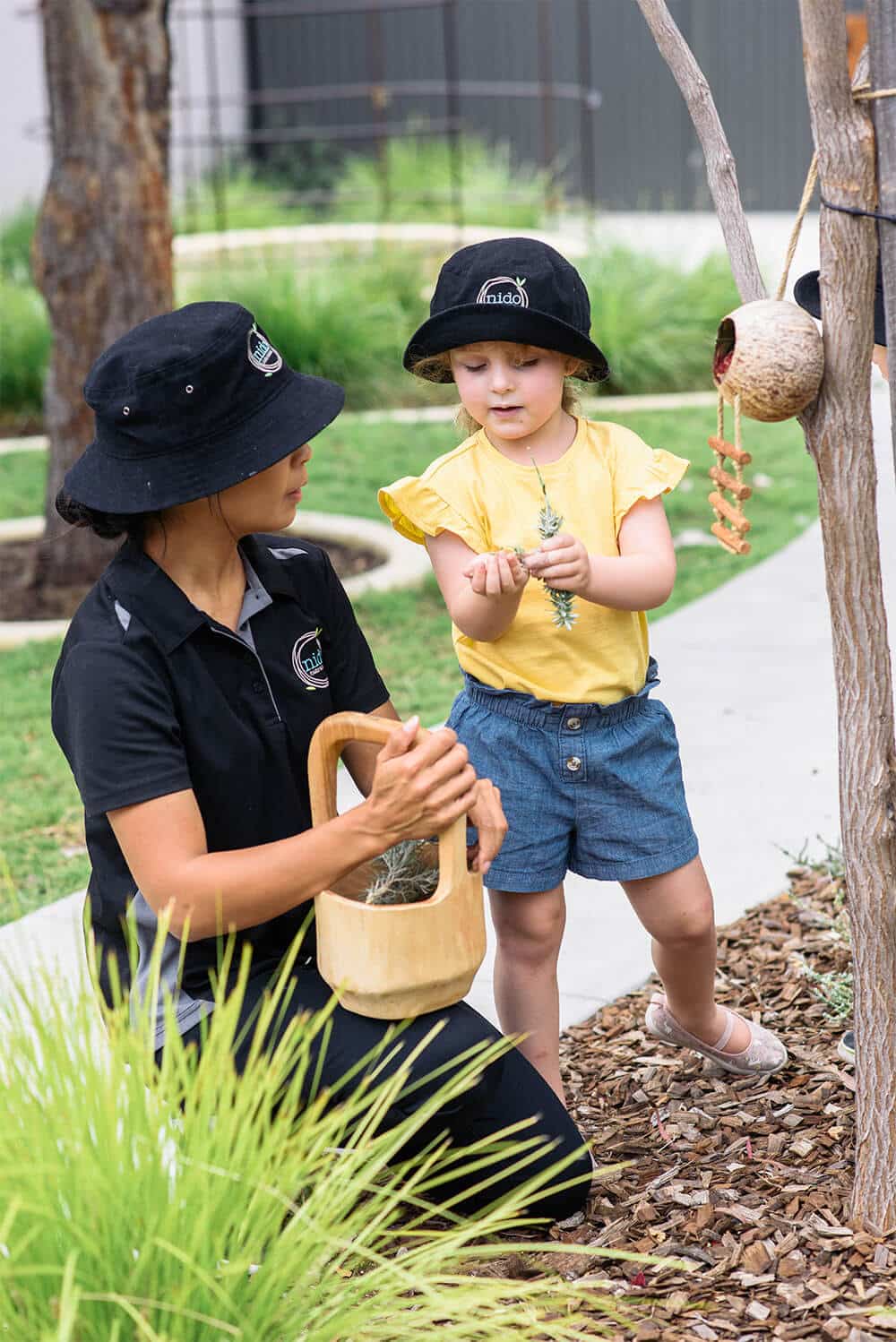
The Nido Philosophy
- Each child has the right to make choices in regard to their learning and should feel a strong sense of well-being
- As the environment is the ‘third teacher’, it is essential that our physical spaces are set up to encourage engagement and exploration
- The environment should reflect both our love of nature and views on sustainability
- Building relationships with families and encouraging a high degree of involvement, is key
- Learning is ongoing and we constantly seek to develop our own knowledge to offer richer experiences to our children
Bringing our philosophy to life
Our philosophy is not just theoretical; we live and breathe it. It impacts everything from our lesson plans to where the cucina is located in the building.
Project-based learning:
When children are interested, they learn. Our Educators are skilled in understanding each child’s individual interests and use these interests to drive project-based learning.
Interactions and relationships:
Given that human interaction develops a child’s brain, relationships are key, not only with their Educator, but also parents and other community members. As valued partners in children’s learning, this extended community are often invited into the classroom setting.
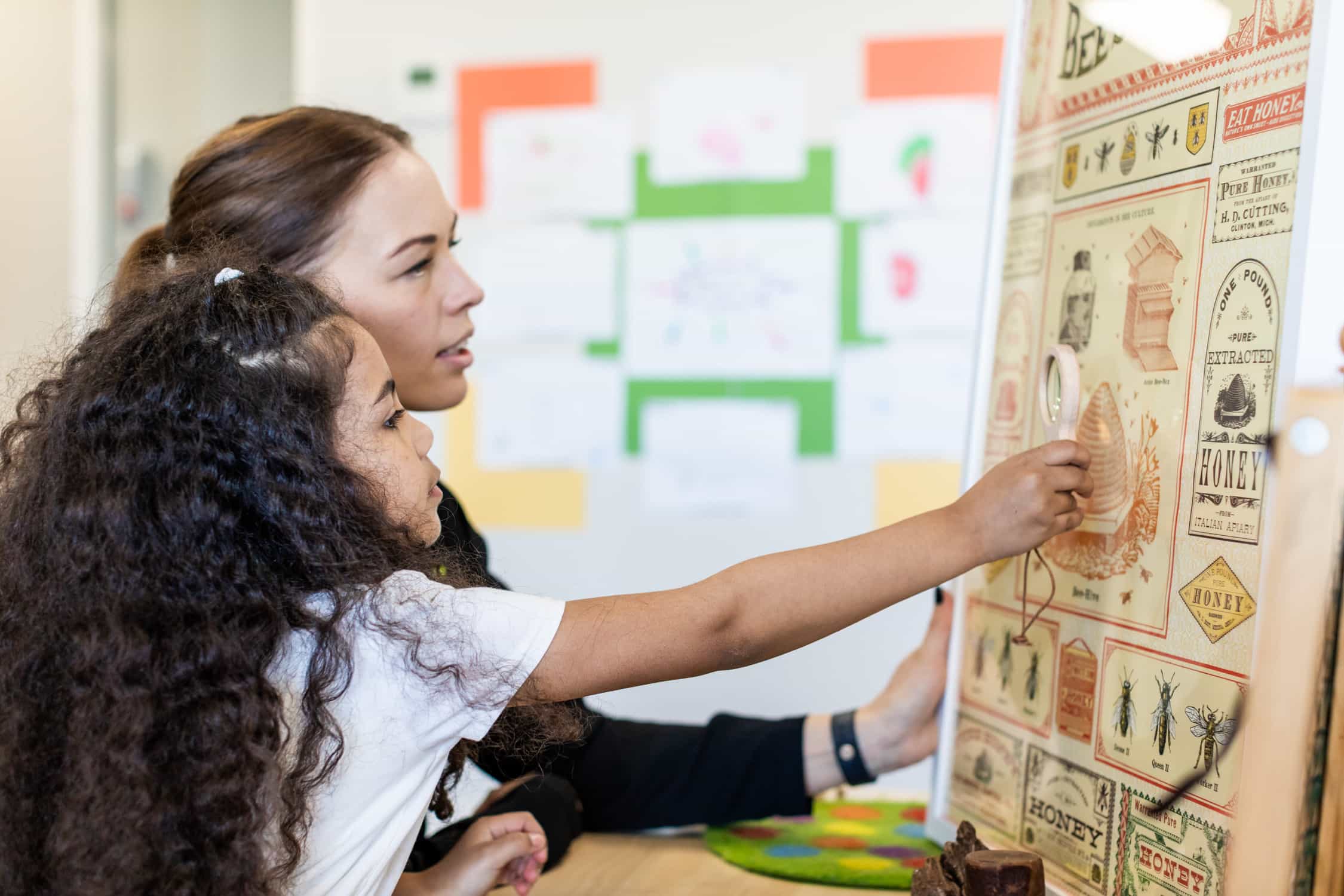
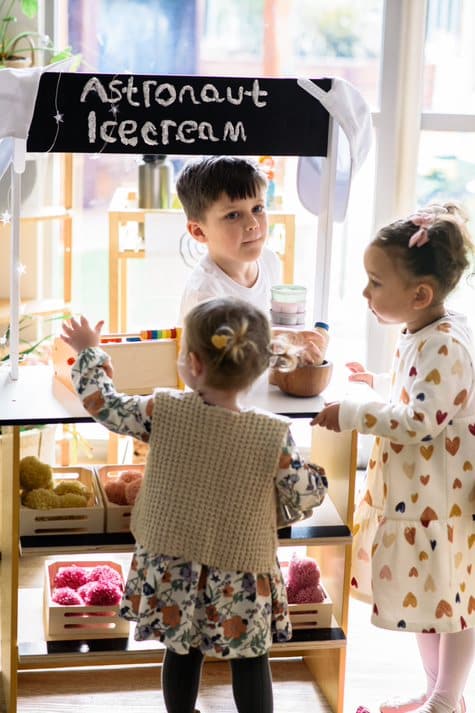
Active citizenship:
Teaching children the importance of being a good person, to look after their peers and take a sustainable approach to life, is key to us and in doing so, helps make the world a far better place.
Role of the educator:
Our Educators play many roles; teacher, co-learner or researcher, depending on what Children need to support their holistic learning and development.
Using a child’s unique imagination:
Children will express themselves using the resources available in their environment. We will offer your child daily opportunities to speak up, write, create, paint, build, dance and represent their thinking and personalities in many different ways.
Reggio Emilia and Montessori
Reggio Emilia and Montessori, both founded in 20th century Italy, are two similar educational philosophies but with different methodologies. Both are child-centric educational approaches that foster curiosity, creativity and life-long learning.
The fundamental differences between the two systems are as follows:
| Reggio Emilia approach | Montessori | |
|---|---|---|
| Key focus | Collaborative, project based learning | Individualised learning |
| Role of the educator | The role of the educator is multi-faceted and responsive to the needs of the children | Children are given the skills to learn independently |
| The classroom | The environment is considered a ‘third teacher.’ Learning is influenced by the resources, materials, educators and children within the environment | More structured approach to learning |
| The curriculum | Reflective of the context and the community where the Early School is situated | Learning is structured by the Montessori curriculum rather than the community |
| Age grouping | Children benefit from multi-age interactions at key times throughout the day, as well as being grouped by age | Multi-age classrooms |





